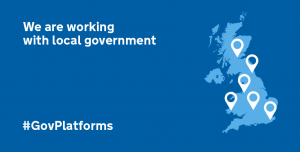Local government rises to the COVID-19 challenge
26 June 2020

The world’s focus throughout the COVID-19 crisis has quite rightly remained fixed on the healthcare sector as it tackled what is arguably the biggest challenge it has ever faced. But of course the pandemic is having a profound effect on every sector. Today we hear from a senior local government officer about some of the ways councils have adapted.
Local government responded quickly to the challenge of COVID-19. It had to – government briefings announced a general direction of travel for lockdown that needed to be decoded in detail on the ground, where people actually live.
The focus of all changes made by local government needed to remain on minimising the anticipated pressure on the NHS, while continuing to deliver local services.
Councils have created and diverted services to pick up multiple threads, working in partnership with local charities where necessary to respond to the needs of numerous different groups. Measures included shutting shops, giving rates relief, closing playgrounds, delaying elections, paying out small business grants, delivering food and medicines to people who needed help, closing the tips, creating public meetings at a distance, and limiting car journeys for individuals.
Multi-tasking
All this while, in common with most other major employers, local councils were busy creating a newly remote workforce almost overnight, all of whom had to be supported by the necessary software.
Street wardens were diverted to delivering food and medicine; council car parks were offered free of charge to NHS and other key workers. Other council staff were reassigned to create a new service community hub to triage people who were vulnerable, without food or medicine, or just needing to hear a friendly voice.
Council finance teams focused on keeping businesses afloat by administering the money sent to them from the government as quickly as possible. One council paid 84% of eligible local businesses with ten days of opening the scheme.
The provision of housing services needed to continue but with an even sharper focus on preventing homelessness, ensuring rough sleepers were temporarily housed – vacant hotels were happy to oblige – while assessing people remotely.
Council communication teams focused on ensuring that all webpages were changed to amended service offers, instructing the public in how to access business-as-usual services, despite office closedowns. They shared government and NHS messages via social media while reassuring residents that the council was there to help.
Comms teams also looked inwards, working on raising the morale of staff who were feeling isolated after years of communal office working. Some sent daily bulletins to update on any overnight service changes with a side of silliness to keep everyone smiling.
A good shift
Local councils are sometimes referred to as the ‘unloved’ part of the public sector. They have been chronically under-resourced and are often overlooked, but they have certainly done their part to ensure that the NHS, at the sharp end of the COVID-19 crisis, is protected while addressing the immediate and ongoing needs of the local population.
As to lessons learned…I feel sure that the old town hall model for local councils will be called into question now that they have demonstrated that they can function well with remote working.

Barbara Browning, GGI
barbara.browning@good-governance.org.uk
